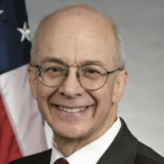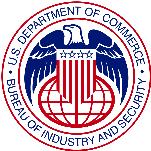The agency responsible for ensuring that technology that can be used to build weapons of mass destruction does not fall into the wrong hands has a new leader, following a confirmation delay of more than six months. Eric L. Hirschhorn, whom President Obama nominated on September 11, 2009, received a recess appointment from the President on March 29, 2010. Hirschhorn’s appointment had been held up by Arizona Senator John Kyl, who was demanding answers to certain questions regarding the administration’s export control review process. The responsibilities of the Bureau of Industry and Security (BIS), an agency in the Department of Commerce, include granting or denying licenses for the export of sensitive goods and technologies, enforcing sanctions and embargoes, and promoting U.S. trade interests abroad.
Born on April 28, 1946, Hirschhorn grew up in New York City, where his father owned an advertising agency and his mother worked for the health care workers union,
Local 1199SEIU. He earned his B.A. from the University of Chicago in 1965 and his law degree from Columbia University Law School, where he was a Harlan Fiske Stone Scholar
in 1968.
Commencing his legal career as a public interest lawyer, Hirschhorn joined
MFY Legal Services in New York as Reginald Heber Smith Community Lawyer Fellow, a position he held from 1968 to 1971. Switching to policy work in 1971, Hirschhorn worked as Counsel for the Democratic Study Group in the New York State Assembly, advising newly elected Democratic state legislators on legislative issues. From 1971 to 1973, he served as Legislative Assistant to Democratic Congresswoman
Bella Abzug, a leading advocate of the women’s movement who was also the first Jewish woman ever elected to Congress. From 1975 to 1977, he served as Chief Counsel for the House Subcommittee on Government Information and Individual Rights.
Joining the Carter Administration in 1977, Hirschhorn served as Deputy Associate Director for International Affairs and Trade in the
Office of Management and Budget, and as Counsel to the President’s Reorganization Project. In 1977 he directed the preparation of a plan to combine the U.S. Information Agency with the State Department’s
Bureau of Educational and Cultural Affairs.
In 1980, President Carter appointed Hirschhorn to run the Bureau of Export Administration, the predecessor agency to the BIS, a post he held until 1981.
When Ronald Reagan took over the White House, Hirschhorn resumed private law practice in the field of international trade. After first working at Johnston, McGeorge & Davidson, he became a partner in the Washington, D.C., office of
Winston & Strawn, where he remained until joining the BIS in March 2010. As a lobbyist at Winston & Strawn, he represented Lockheed Martin, Sun Chemicals and high-tech firms, among others. In a 1995 editorial in the
Journal of Commerce, he argued against pre-shipment reporting and clearance of goods to be exported.
Hirschhorn has been a consistent critic of unilateral trade sanctions by the U.S. He opposed President Clinton’s proposed trade sanctions against Iran, and spoke out against limiting trade with China if the Chinese military might be involved. In 2001 he called regulating the export of computers other than supercomputers “a pointless exercise” because such computers could be purchased from other countries. In 2007 Hirschhorn represented the
National Foreign Trade Council in its lawsuit opposing the state of Illinois’ ban on trade with Sudan.
During his confirmation hearing for BIS undersecretary on November 5, 2009, Hirschhorn said that he would not allow his longtime advocacy work for less restrictive export controls to interfere with the Obama administration’s use of unilateral sanctions.
Although Hirschhorn ceased to be a registered lobbyist in 2005, he continued to work for Winston & Strawn as a “government relations advisor.”
Starting in 1986, Hirschhorn was also Executive Secretary of the
Industry Coalition on Technology Transfer, a trade group that advocates and lobbies for companies involved in exports, especially defense-related exports.
He has also dealt with matters related to professional responsibility and conflict of interests. He chaired the D.C. Bar Legal Ethics Committee and the D.C. Bar Rules of Professional Conduct Review Committee.
A lifelong Democrat, since 1992 Hirschhorn has contributed $22,312 to various Democratic candidates and causes, including $1,500 to the Democratic National Committee, $2,562 to the presidential campaign of Barack Obama, $500 to Senator John Kerry, $1,000 to Vice President Al Gore, $1,000 to President Bill Clinton, and
$300 to the California campaign to prevent the abolition of gay marriage in that state. Hirschhorn is a member of the District of Columbia and New York bars.
Hirschhorn, who was married once before, has been married since 1981 to law professor
Leah Wortham, who teaches at Catholic University in Washington, DC. The couple has three children, Alex, Elizabeth and Anne.
Professional Profile (Martindale-Hubbell)






